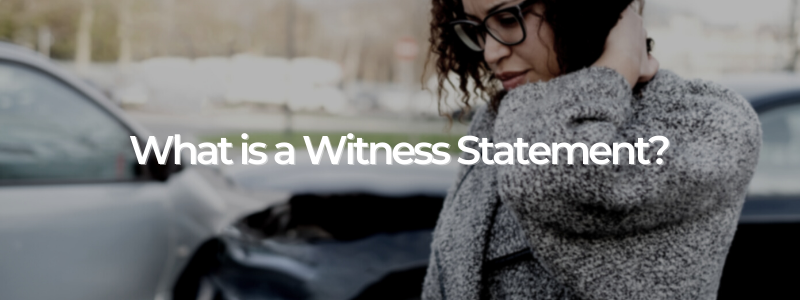When filing an insurance claim or lawsuit after a Texas accident, there are a number of facts you will need to prove. You will need to establish that the at-fault party owed you a duty of care, breached that duty of care, and injured you as a result of his or her actions. There are multiple pieces of evidence that you can use to prove your case—including the testimony of witnesses who saw the accident occur.
Witness statements are crucial to proving personal injury claims, and if you are involved in an accident, it is important to collect contact information from these individuals to support your future case.

Why Are Witnesses Important to a Personal Injury Claim?
To recover compensation in a personal injury claim, you will need to prove that the at-fault party was responsible for your accident. While there are several ways that you can establish liability, witness statements are one of the strongest forms of evidence that you can provide. Each party involved in an accident wants to protect their best interests, and a neutral third-party witness can provide a credible account of how the accident occurred.
Witnesses can help prove your version of events and establish the other party’s liability. Using these statements, you can preserve the facts of your case and bring critical evidence to the court or insurance company. If an insurance company reviews credible witness statements, it may be more likely to offer a settlement than if it could not validate your side of the story. If your case goes to trial, you can use witness statements to prove that you were not at fault for the accident.
Factors That Affect Witness Credibility
While you may be able to obtain witness statements after an accident, not all witnesses are considered credible. Witness reliability is a very important factor in an accident claim; if a witness is not credible, the court or insurance company may not accept his or her testimony. There are many factors that affect witness credibility in a personal injury claim, including the following.
- Whether the witness has provided conflicting versions of events during different stages of the case
- Whether the witness experienced significant anxiety or stress after seeing the accident take place
- Whether the witness knew you or the at-fault party before the accident occurred
- Whether the witness expresses a personal bias about you or the at-fault party
Questions a Witness Could Be Asked
To ensure that your witnesses can provide effective testimony, it is important for you and your attorney to ask relevant questions as soon as possible after the accident. However, you do not want to ask questions that could lead to weak or conflicting testimony. Some of the most powerful questions that you can ask an accident witness include the following.
- Can you explain in your own words how the accident occurred?
- Where were you when the accident happened? How far away were you?
- What did you do after the accident?
- What did the people involved in the accident do after the accident occurred?
- Did you see any other witnesses at the scene?
- Where were you coming from and where were you headed?
If you are injured by someone else, witness statements can help you recover the compensation you deserve through an insurance claim or lawsuit. In these situations, however, it is important to have an attorney on your side. Contact a McAllen personal injury lawyer as soon as possible following your accident to discuss your legal options.

